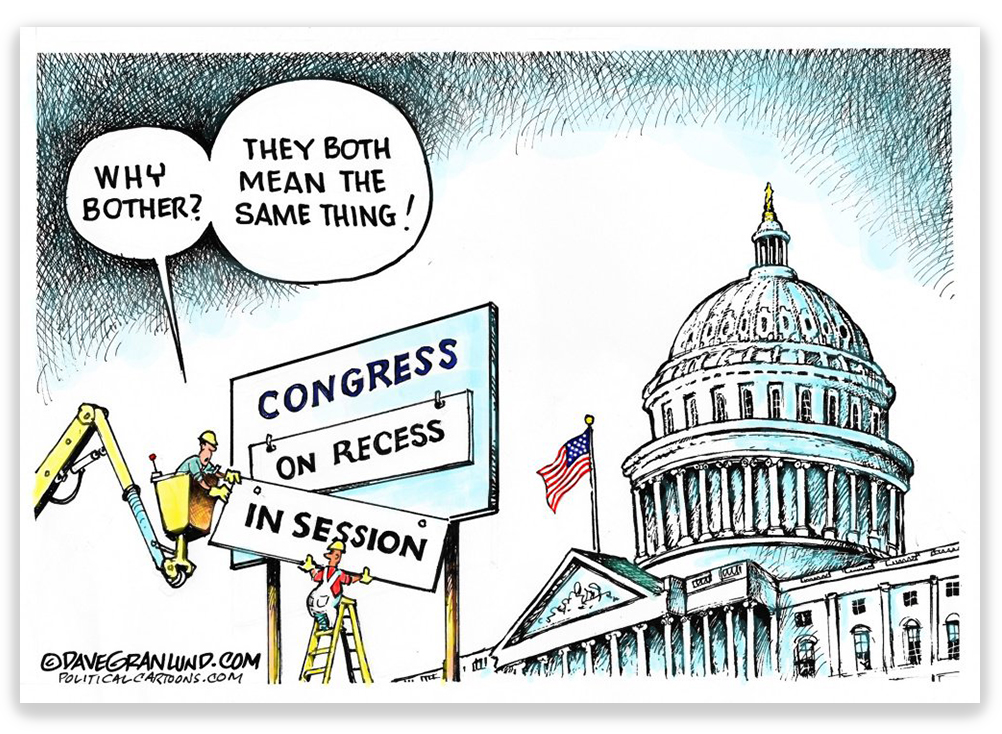We post news and comment on federal criminal justice issues, focused primarily on trial and post-conviction matters, legislative initiatives, and sentencing issues.

BOP DIRECTOR’S FINAL HOUSE OVERSIGHT HEARING LARGELY A MARSHMALLOW FIGHT
 Bureau of Prisons Director Michael Carvajal dumped numbers on a largely uncritical House Subcommittee on Crime, Terrorism, and Homeland Security last Thursday, in what is likely the retiring Director’s final oversight hearing.
Bureau of Prisons Director Michael Carvajal dumped numbers on a largely uncritical House Subcommittee on Crime, Terrorism, and Homeland Security last Thursday, in what is likely the retiring Director’s final oversight hearing.
Committee chair Rep. Sheila Jackson-Lee (D-Texas) suggested fireworks to come when she opened the session wondering how the BOP could justify turning down inmates for compassionate release who later died of COVID. But the fireworks were largely a dud, as hard questions about criminal misconduct by BOP staff, lax security, and decrepit facilities – the reasons Associated Press gave for Carvajal’s resignation in the wake of Congressional pressure for his replacement – went unasked.
The Director’s play with numbers went unchallenged as well. His written statement reported that the Bureau has transferred more than 37,000 inmates to community custody, noting parenthetically that only about a quarter of those were transferred pursuant to the authority granted by the CARES Act. In his oral testimony, the Director truncated that to the BOP having “released over or transferred over 37,000 under the CARES Act to home confinement and community placement.”
The BOP has been bandying the 37,000 number about for a long time, used to lull legislators into thinking the agency had vigorously used its CARES Act authority. What it comes down to is that the BOP kept releasing people to halfway house/home confinement as usual but could only find under 7% of BOP inmates in custody who “qualified” for CARES Act placement over a 22-month period. The “qualifications” were those laid down by the Attorney General, with additional gloss (such as the inmate must have served 50% of his or her sentence). That means that 28,000 of that 37,000 number would have gone to halfway house or home confinement under normal end-of-sentence placement, even without the CARES Act.
Maybe the number misdirection doesn’t seem like such a big deal, but it’s emblematic of BOP culture. If the BOP’s professional judgment is that the CARES Act should be no more than the 7% solution, why not tell Congress “we released 9,000 people under the CARES Act, and if you wanted us to release more, you should have written the law differently.” Instead, the BOP leads with the 37,000 number, hoping that Congress doesn’t listen that carefully, and will think the BOP has done much more than it has. It is a tacit admission by the BOP that it knows it has been unreasonably chary in applying the CARES Act, and it hopes Congress doesn’t tumble to it.
 Perhaps the next BOP director will be candid enough to own what his agency has done or not done with its authority. (See flying pig).
Perhaps the next BOP director will be candid enough to own what his agency has done or not done with its authority. (See flying pig).
Carvajal also assured the Subcommittee that the BOP “continue[s] to screen inmates for appropriate placement on CARES Act” and that while the 50%-of-sentence standard is one of the “four hard criteria,” the BOP has “discretion – there usually is a higher-level review if the staff of the institution feels that it is appropriate outside of the CARES Act, we have procedures in place to review cases such as that…” Call this the Manafort exception. Unfortunately, but for Paul Manafort’s CARES Act release in May 2020 (and former congressman Chaka Fattah in July 2020), the BOP has been steadfast in refusing to waive the 50% rule. It should be called the “who-you-know” exception.
 Responding to questions from Rep. Karen Bass (D-California), Carvajal said that 80% of the BOP staff was vaccinated, but only 95,000 out of 135,100 in-custody inmates had gotten the jab. His numbers are way off the BOP’s own website, which reports that 119,500 inmates are vaccinated – 78% – but only 70.4% of the BOP’s 36,739 employees have gotten the shot.
Responding to questions from Rep. Karen Bass (D-California), Carvajal said that 80% of the BOP staff was vaccinated, but only 95,000 out of 135,100 in-custody inmates had gotten the jab. His numbers are way off the BOP’s own website, which reports that 119,500 inmates are vaccinated – 78% – but only 70.4% of the BOP’s 36,739 employees have gotten the shot.
[Note to Mike: it’s easier to fudge the numbers when you’re not simultaneously making the real data available to anyone with a smartphone.]
Rep. Thomas Massie (R-KY) said the BOP had told his staff that 4,738 BOP employees (12.9% of the workforce) had gotten exemptions – mostly religious – from taking the vaccine, and groused that “it’s kind of it’s interesting that the inmates have more rights [to refuse vaccines] than the officers themselves.” No one knows what the Congressman might think if he knew the numbers Director Carvajal had given him were wrong. For what it’s worth, Congressman, if the BOP is getting rid of staff who refuse the vaccine, inmates would happily accept the same fate.
One of the only tense moments in the hearing came when Rep. Cori Bush (D-MO) braced Carvajal on conditions brought to her attention by the National Council for Incarcerated and Formerly Incarcerated Women and Girls. Bush said:
In these emails, women in federal custody detail horrifying accounts of not being allowed to get out of their beds all day because of COVID lockdowns, being forced to eat expired food, having little to no access to medical services to treat cancers and other underlying conditions, having to pay $2.00 to file a sick complaint. This is all happening under your watch. These are complaints coming from not one or not two facilities but five different facilities, which makes clear that these issues are not isolated… These women cannot hold you accountable, Mr. Carvajal, they cannot, but we can, and I would like to use this opportunity to ask you questions that they cannot directly ask you out of fear of retaliation.
 The Director responded, “I’m not aware of those particular complaints, but I’m certainly interested in hearing from you and your staff so that we can look into them, because I find that – if that happened – I find it unacceptable.” He assured Bush that “we take all allegations seriously…” Not that I disagree – I would never dispute what the BOP director says – but I have hundreds of emails from inmates who beg to differ.
The Director responded, “I’m not aware of those particular complaints, but I’m certainly interested in hearing from you and your staff so that we can look into them, because I find that – if that happened – I find it unacceptable.” He assured Bush that “we take all allegations seriously…” Not that I disagree – I would never dispute what the BOP director says – but I have hundreds of emails from inmates who beg to differ.
Carvajal explained to the legislators, “I’d like to stress something – we’re not here for punishment, the taking of their time by the courts and the criminal justice system, that’s the punishment, we’re here to house people that are remanded to our custody and more importantly to prepare them to reenter society, keep them safe while they’re here. We’re not here as punishment, that’s not how we look at this agency.”
The hearing had a few other bumps. Rep. Steve Cohen (D-TN) complained that the BOP “has unfortunately failed to protect the health of those within their custody and their staff from COVID-19 or address chronic understaffing [and] the BOP has also lacked transparency and vigor and implementing important criminal justice reforms such as the First Step Act.”
Jackson-Lee raised the reports filed by epidemiologist Homer Venters, M.D., on MDC Brooklyn and FCC Lompoc. She noted that “his investigation revealed [a] disturbing lack of access to care when a new medical problem is encountered…” Venters noted that at MDC Brooklyn, “it quickly became apparent that not only were many people reporting that their sick call requests, including COVID-19 symptoms, were being ignored, but that the facility was actually destroying their original request which violates basic correctional standards. [T]his is an accountability hearing… these are human beings deserving of respect and dignity, men and women…”
Carvajal said he was “aware of the report, we looked into it, we followed up, I won’t discuss that specific incident, but I will reassure you that each of our institutions has an outpatient health clinic that’s overseen by a board-certified physician and a medical director. We have outside oversight… If there’s a mistake made or something of that nature, we’re going to look into it and do something about it correct the issue.”
 He did not mention and the Subcommittee did not note that the BOP’s “follow-up” consisted of vigorously contesting every aspect of Venters’ report in litigation over MDC Brooklyn.
He did not mention and the Subcommittee did not note that the BOP’s “follow-up” consisted of vigorously contesting every aspect of Venters’ report in litigation over MDC Brooklyn.
It may not be much of a plan to testify before a subcommittee hoping that the legislators haven’t done their homework. But Director Carvajal seems to have capped his career doing just that, and with some success.
Statement of Michael Carvajal, House Committee on Judiciary (Feb 3, 2022)
Hearing, Oversight of the Federal Bureau of Prisons (Feb 3, 2022)
Fernandez-Rodriguez v. Licon-Vitale, 470 F.Supp.3d 323 (S.D.N.Y. 2020)
– Thomas L. Root









